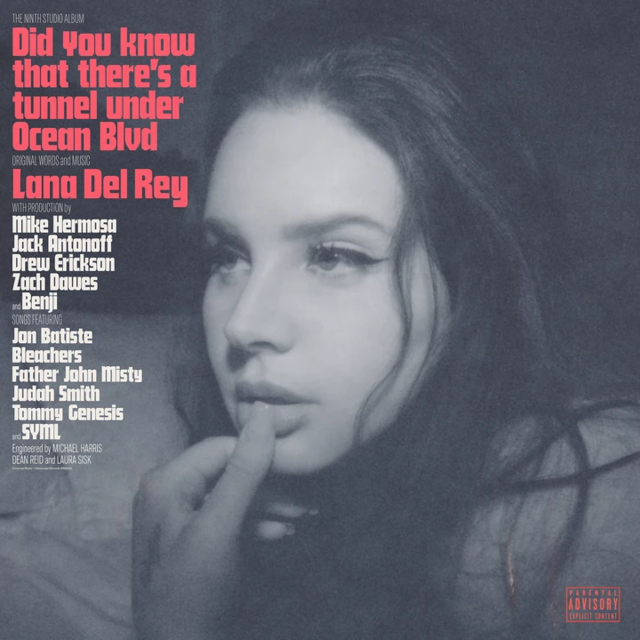Lana Del Rey’s new album is her most personal one yet
Wikimedia Commons
An alternative cover of Lana Del Rey’s new album “Did you know that there’s a tunnel under Ocean Blvd” containing a photo of Del Rey with her thumb in her mouth. The album is a turning point, hitting new emotional depth in a more quiet, quaint style.
March 28, 2023
“Did you know that there’s a tunnel under Ocean Blvd” is a reflection of the rawness that is the human mind.
Lana Del Rey’s newest album “Did you know that there’s a tunnel under Ocean Blvd” was released Friday. Three singles, “Did you know that there’s a tunnel under Ocean Blvd,” “A&W” and “The Grants,” were released before the album, in that order. The album consists of 16 songs that contain heavy themes of life, death and the power of memories.
This album is unlike her old ones due to its lack of the fun, pop feels her late songs emitted. Del Rey’s new album is very lyrical and uses soft sounds like the piano and string instruments. It’s an album of scattered thoughts and of confronting the past. Lana takes a risk and reveals secrets and desires that sound like they were hiding in diary entries in a lonely, dark corner.
The album opens with the song “The Grants,” named after her family. Del Rey’s real name is Elizabeth Woolridge Grant, so the album’s first song could act as a dedication to them. Del Rey sings about how she’s going to take her memories of her family along with her when she dies after hearing her pastor say “When you leave, all you take / uh-huh is your memories.” The first song sets the sorrowful, somber mood that Del Rey conveys throughout the rest of the album.
There are two interludes Del Rey includes in the album – “Judah Smith Interlude” and “Jon Batiste Interlude.” The first one deserves to be mentioned as it contains audio of a church pastor passionately yelling his sermon to an audience. It sounds like Del Rey recorded the pastor’s voice on her phone, as listeners can hear her and someone else snickering throughout the interlude. The voiceover is accompanied by a haunting piano melody that keeps pace with the pastor’s fervent tone. This interlude feels as if it should belong in a horror movie, leaving listeners feeling uneasy afterward.
The tracks “Kintsugi” and “Fingertips” are next and are a stark contrast from her interludes. The songs carry the emotional weight of Del Rey losing family and recounts a time she wanted to die at 15 years old. It’s easy to picture Del Rey singing these melodies on a piano that sits next to an open window as sunlight streams in, contrasting her melancholy mood.
A memorable track off her album is “Paris, Texas,” a song that features the solo artist SYML who is known for releasing piano ballads. Del Rey samples SYML’s “I Wanted to Leave” which is a wordless song, but in “Paris, Texas” she sings as if she’s filling in the lyrics for SYML. Part of the opening lyrics “I had to leave / Knew they wouldn’t understand” allude to the song Del Rey samples which serves as an “aha” moment to those who are familiar with SYML’s work.
Rey’s new album features soft music that doesn’t overshadow her lyricism, allowing listeners to clearly hear her words and digest the lyrics. Fans should expect to cry, not dance for 77 minutes.
Though the album is void of any electronic pop and trap beats, Rey’s newest album confronts what so many of us are afraid of: our deepest desires and thoughts. She doesn’t restrain herself, making listeners feel as if they’re eavesdropping on vulnerable, private conversations. This album is Del Rey revealing her scarred, broken heart to the world as she crafts raw songs.







